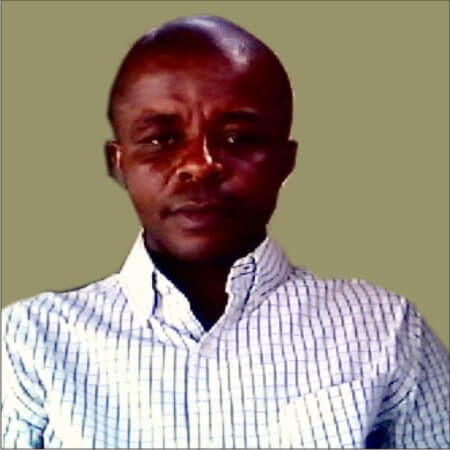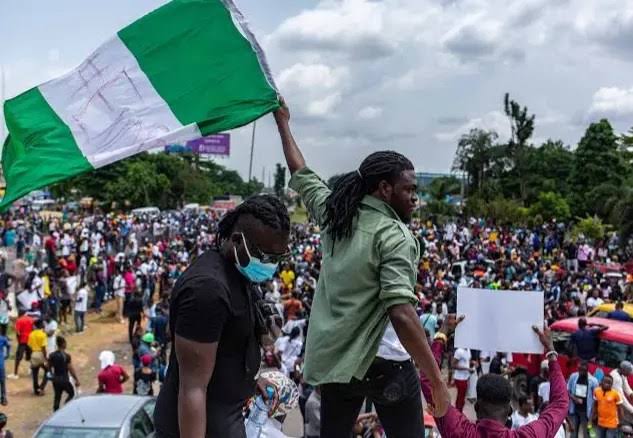June 12: Buhari, Democracy and Good Governance

By Jerome-Mario Utomi
When President Muhammadu Buhari in 2019, during his second term bid in office adopted; Next Level, as his campaign slogan, and in similar style on Monday, August 19, 2019 at the retreat for the ministers stated that; ministers will be responsible for the development and implementation of policies, programmes and projects in their various ministries, departments and agencies in line with the government priorities; and also ensure that agencies under their ministries are effective, efficient and accountable in their responsibilities, I, without looking at the possibility of much deeper crisis concluded that the single most important element in Nigeria’s developmental voyage that will bring a fundamental change of direction to our democracy and lay solid foundation for good governance has finally arrived the nation’s political shore.
This feeling stems from the crucial distinctions between democracy and good governance. For clarity, while ‘democracy is a government of the people by the people and for the people, good governance on its part entails the diligent exercising of the economic, political and administrative authorities to manage a country’s affair at all levels within the rule of law in such a manner that delivers maximum dividends to citizens’. Governance is anchored on the constitution and effective leadership’.
One year after that adoption/pronouncement, the administration has shown some actions laced with superficial resemblance of good governance, but at about the same time got involved with some unwelcome departure from the normal good sense and judgements.
Aside from the August 20th, 2019, ordered closure of Nigeria’s border with Benin Republic, citing massive smuggling activities taking place on that corridor as reason(s)- an action which analysts believe have resultantly brought about increase in the nation’s domestic rice production capacity, prioritized security, brought about increase to the nations’ revenue and assisted the Central Bank of Nigeria(CBN)’s Anchor Borrowers Programme, there are other areas, going by commentaries that the present administration lay claims to have provided leadership.
Buhari’s Administration believes that it has demonstrated a single-minded commitment in upgrading and developing Nigeria’s Transport, Power and Health Infrastructures. Recently, the FG underlined that three major rail projects inherited from previous administrations have been completed and commissioned: Abuja Metro Rail and the Abuja-Kaduna Rail, and the 327km Itakpe-Ajaokuta-Warri Rail, started in 1987, have been completed in 2020. The administration has equally told whoever that cares to listen that its SIP programme is the largest and most ambitious social safety net programme in the history of Nigeria, with 12 million direct beneficiaries so far: 500,000 N-Power beneficiaries currently enrolled and have been deployed and are receiving N30, 000 in monthly stipends. Additional 40,000, they noted are at various stages of enrolment.
Without going into specific concepts or approaches, Nigerians have within this space under review listened to the Federal Government reel out its achievements in the electricity sector with the loudest being the electricity roadmap which forms a part of the outcome of the meeting President Muhammadu Buhari held with a German Chancellor, Angela Merkel on August 31, 2018, and will have Nigeria partner with the German government and Siemens, in implementing this projects geared towards resolving challenges in the sector, expand capacity for future power needs and supply in Nigeria.
Also, separate from the trumpeted recovery of over N200 billion and conviction of over 890 people in 2019 anti-corruption war alone, PMB’s handlers believe that he has done well, and will continue to do more in fighting corruption out of inherent conviction and desire on his part to fight against corruption devoid of any extraneous considerations.
However, despite these ingrain “virtues and attributes” associated with this government, Nigerians with critical interests have since expressed concern about these claims and their styled definition of performance particularly as most of its actions/policies could be safely described as unjust man-made codes that neither squares up with moral laws nor uplifts human personalities but fortified with capacity that renders Nigerians jobless and hungry,
Expectedly, no event that did so well to expose gaps in the performance and credibility claim was the 2019 report by the Transparency International’s Corruption Perception Index (CPI), a flagship research product which measures the glimpse of perceived corruption in the public sector of surveyed countries.
Out of the 180 countries that were surveyed worldwide, the result saw Nigeria slip from 144th to 146th on the pecking order and fell by 26 points, a minus of one when compared to its score in 2018 and now ranked 32 out of 49 countries in the sub-region. It did not end here. The report points to the fact that its score of 26 is way below the global average of 43 and the 2019 average score of 32 for the sub-Saharan Africa region.
Why this report is damaging to the present administration is that corruption according to AL-Gore, a former Vice President of the United States (USA), destroys and breaks that trust which is absolutely essential for the delicate alchemy at the heart of representative democracy. In its contemporary form, corruption almost always involves an incestuous coupling of power and money and describes the exchange of money for the misuse of public power.
“It matters not whether the exchange is initiated by the person with the money or the person with the power; it is the exchange itself that is the essence of the corruption. It matters not if the private enrichment is with cash or with its equivalent in influence, prestige, status, or power; the harm is done by the fraudulent substitution of wealth for reason in the determination of how the power is used. It matters not if the purchase of power is seen as beneficial by some or even by many; it is the dishonesty of the transaction that carries the poison”.
Away from corruption index, President Buhari in my views should not be talking about good governance without first demonstrating good example by slashing his security votes and other avoidable expenditures. Going by reports, the 2020 financial estimate shows that Mr. President and His Vice will spend N4.2Billion. Out of this amount, travel will gulp N3.3 Billion, while catering will take N149.1 Billion. This high cost of governance has not only led to poor delivery of democracy dividends but its happening in a country where over 112 million Nigerians now live below the UN poverty line.
The country should not in my views be discussing good governance or next level without Mr. President explaining to Nigerians; how under his administration over 13.2 million Nigerian children suddenly found themselves to be out of school with majority on the streets even when it is obvious that streets are reputed for breeding all forms of criminals and other social misfits who pose the actual threats in the forms of armed robbery, thugs, drug abusers and other social ills that gives bad names to the society?
Why unemployment rate is currently according to NBS report at 28% and under-employment at 16%, in the face of the awareness that huge unemployed citizens remain a potential security threat to the few that are employed? For Nigerians to believe his governance tantrum about good governance, they deserve explanation to what made the country become a very high risk borrower that services its debt with 50% of its annual revenue despite the abundant natural resources? And why the country’s revenue crisis has remained unabating in the last five years, while the borrowings have persisted, which is an indication that the economy has been primed for recurring tough outcomes?
On this day at this time and in this place, there is need for explanation in clear terms to what happened to our educational system which used to be a model to other nations of the world and a beacon of glory for Africa-and immensely adored and celebrated globally as our students/graduates showed unsearchable depth and great intellects in every discourse, ahead of their counterparts in other nations? But have recently taken a nose dive, as examination malpractice, constant strike actions, poor educational facilities, corruption, are all on the rise. To the extent that countries that once esteemed our educational system can hardly admit Nigerian students now, let alone employ graduates unless they undergo a compulsory preliminary training.
What the above tells us as a nation is that the remaining three years of this administration is critical. More work needs to be done and more reforms to be made; it reminds us that as a nation, we are poor not because of our geographical location or due to absence of mineral/natural resources but because our leaders fail to take decisions that engineer prosperity; That considering the slow growing economy but scary unemployment levels in the country, the current administration will continue to find itself faced with difficulty accelerating the economic life cycle of the nation until it contemplates industrialization, revenue diversification and productive collaboration with private organizations that has surplus capital to create employment.
That while the first option (industrialization) may offer considerable solution, the second and third options has more potential reward in political and socioeconomic terms as well as comes with a reduced financial risk, increase national economic stability as a decline in particular revenue source might be offset by increase in other revenue sources if diversified.
Will the next three years be enough for Mr. Present to tackle this legion of problems?
Certainly, yes!
All he needs do is to remember what our real problems as a nation are; discover what he can do within these three years for the nation to feel happy? ‘What are the inherent dangers associated with his doing the job? What is the biggest opportunity to focus in order to capture and achieve these goals? What strength is needed to reinforce and maximize’? What skills and resources are needed that are currently unavailable? Mr Presidents’ ability to handle these challenges will determine our political health as a nation and our prestige as the giant of Africa.
Jerome-Mario Utomi([email protected]), is a Lagos-based Media consultant




